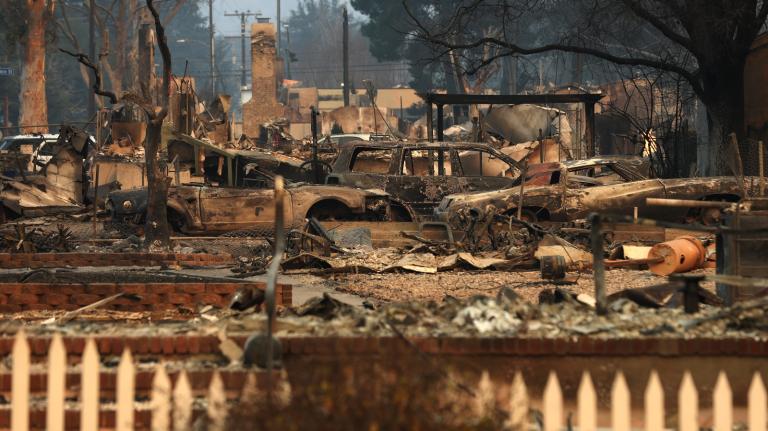Obama ran on clear and detailed energy and climate plans.
The election poses three over-arching questions:
- On solutions: Does Obama have a clear mandate to enact his plans to transform our energy and climate policy?
- On science: Will the transformation he is actually able to enact be sufficient to avert the worst climate impacts (and, relatedly, the worst peak oil impacts).
- On politics: Will this transformation be bipartisan?
The answers are, I think, “yes,” “probably not,” and “almost certainly not.”
The answers are related, of course. If conservatives accepted the overwhelming evidence of the dire nature of the climate problem, then the policy measures that progressives could enact would be far stronger. And I’m including Democratic conservatives in that assertion.
On the first question, the NYT‘s lead editorial today explains a core reason Obama swept to victory:
His triumph was decisive and sweeping, because he saw what is wrong with this country: the utter failure of government to protect its citizens. He offered a government that does not try to solve every problem but will do those things beyond the power of individual citizens: to regulate the economy fairly, keep the air clean and the food safe, ensure that the sick have access to health care, and educate children to compete in a globalized world …
Climate change is a global threat, and after years of denial and inaction, this country must take the lead on addressing it. The nation must develop new, cleaner energy technologies, to reduce greenhouse gases and its dependence on foreign oil.
Traditional Republican conservatives simply don’t get the nature of the problem or even the message of the election — and as a result they are likely to
- Continue their obstructionists efforts that threaten the health and well-being of all humanity.
- Be in the political wilderness for a long time.
If that wasn’t clear from the increasingly desperate embrace of coal and oil by the GOP, including one-time-climate-advocate John McCain, then it should be clear from the op-ed in today’s Post by conservative Jeff Flake (R-Ariz.), “A way out of the wilderness“:
In January, Democrats will enjoy lopsided congressional ratios not seen since the 1970s. Let’s face it: We Republicans are now, by any reasonable measurement, deep in the political wilderness …
I suggest that we return to first principles. At the top of that list has to be a recommitment to limited government. After eight years of profligate spending and soaring deficits, voters can be forgiven for not knowing that limited government has long been the first article of faith for Republicans …
Second, we need to recommit to our belief in economic freedom. Adam Smith’s “The Wealth of Nations” may be on the discount rack this year, but the free market is still the most efficient means to allocate capital and human resources in an economy, and Americans know it. Now that we’ve inserted government deeply into the private sector by bailing out banks and businesses, the temptation will be for government to overstay its welcome and force the distribution of resources to serve political ends. Substituting political for economic incentives is not the recipe for economic recovery.
Most House Republicans opposed the recent bailout and will be in a strong position to promote economic freedom over central planning as the Obama administration stumbles from industry to industry trying to determine which is small enough to be allowed to fail and which is not. Since timetables will be in vogue, perhaps Republicans could even insist on a timetable for getting the government out of the private sector …
But there is reason for Republicans to feel optimism. Politically, America remains a center-right country, and America loves a chastened and repentant sinner. As surely as the sun rises in the east, the Democrats will overreach.
As long as we Republicans are willing to admit our folly, get back to first principles and work like there’s no tomorrow, we’ve got ’em just where we want ’em.
Sad. One could easily argue that this election — and the campaign McCain ran and decisively lost — utterly undercuts every single point Flake makes.
What could be clearer than that conservatives haven’t figured out the public wants strong government engagement on key issues related to economy, health, energy, and the environment?
I had previously explained why I don’t think a climate bill is likely to get many Republican votes, see “Q: Does a cap-and-trade bill have to be bipartisan?” Flake’s op-ed only serves to underscore my conclusion.
This, of course, will pose an enormous challenge for Obama, since he campaigned strongly on two mutually exclusive issues: enacting a serious energy/climate policy and achieving bipartisan solutions. Ironically, enough, though, it may be John McCain who allows at least Obama’s climate bill to have the aura of bipartisanship, as I’ll discuss in "Part 2."
This post was created for ClimateProgress.org, a project of the Center for American Progress Action Fund.

